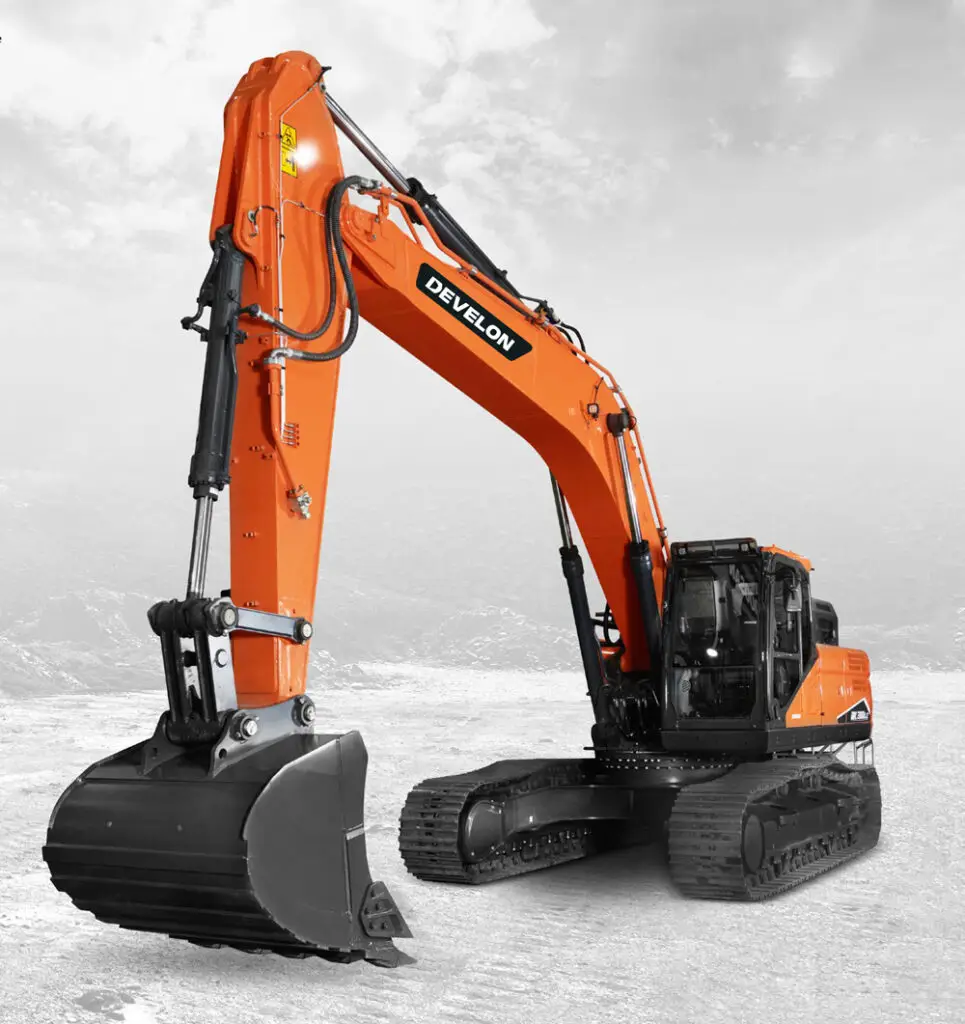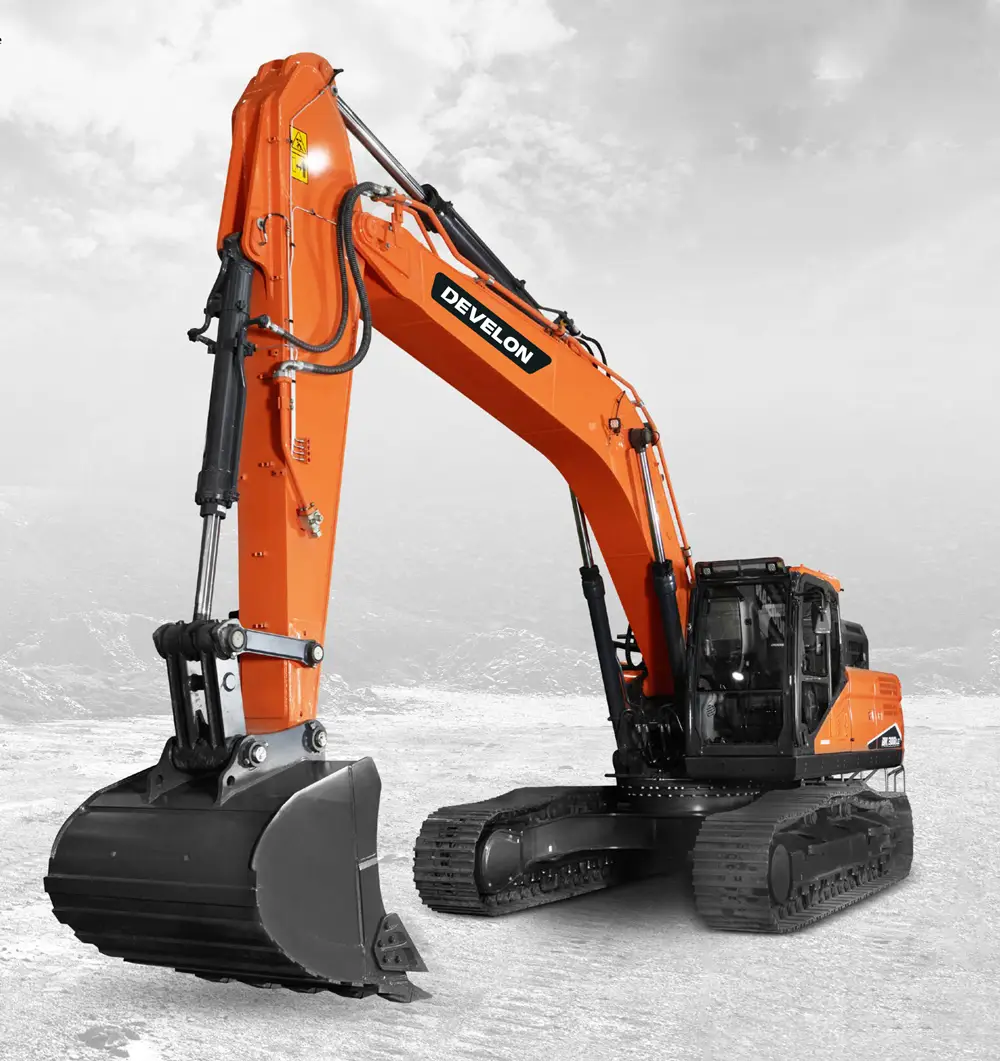Choosing the Best Excavator for South African Soil (and Tar, and Rock…)
Let’s face it – selecting the right earth-moving equipment isn’t exactly dinner table conversation. But if you’re in construction, mining, or infrastructure development in South Africa, it’s a decision that can mean the difference between meeting your project deadline and explaining to your client why your construction project is running two weeks late and 10% over budget.
Enter the classic debate: Tracked vs. Wheeled Excavators.
Both are powerful, versatile earth-moving machines, but when it comes to navigating the diverse terrains of South Africa- from Joburg’s tight urban corners to the dusty expanses of the Northern Cape – the right choice can vary significantly. So, let’s dig in (pun intended).
Tracked Excavators: The Heavyweight Contender
What Are They?
Tracked excavators, also known as crawler excavators, move using continuous tracks instead of wheels. Think of them like the 4×4 of the construction world—tough, reliable, and practically unshakeable.
Pros:
- Unmatched Stability: Thanks to a low center of gravity and wide tracks, these machines are built for uneven terrain and steep inclines. Whether you’re in a muddy trench or on a rocky mine slope, they won’t flinch.
- Superior Digging Power: Their hydraulic systems are robust, which makes them ideal for heavy-duty excavation.
- Better Traction on Loose or Soft Ground: Sand, mud, and gravel are no match.
Cons:
- Slow and Steady (Emphasis on Slow): Tracked excavators don’t move quickly between locations. You’ll need a flatbed to relocate them.
- They Like a Challenge: These machines are overkill for flat, paved surfaces or minor trenching in a shopping mall parking lot.
Wheeled Excavators: The Agile City-Slicker
What Are They?
Wheeled excavators are exactly what they sound like: excavators on wheels. Designed for mobility and speed, these machines thrive in urban environments and flat surfaces.
Pros:
- Mobility Master: Move between job sites without a trailer. Perfect for urban contractors jumping between city projects.
- Gentler on Paved Surfaces: Unlike their tracked cousins, wheeled excavators don’t chew up asphalt like it is lunch!
- Lower Operational Costs: Less wear-and-tear and easier maintenance in urban settings.
Cons:
- Not Great Off-Road: They’re not built for mud baths or boulder hopping.
- Less Stability on Uneven Ground: Slopes and soft terrain make for nervous operators.

Choosing the Right Tool for South Africa’s Unique Terrains
Now that we’ve introduced the contenders, let’s look at where each one shines in the South African context.
- Urban Development (Cape Town, Johannesburg, Durban)
You’re building a high-rise, upgrading sewer systems, or installing fibre internet. Roads are paved, traffic is tight, and you don’t want to upset the neighbours with a trench the size of Table Mountain.
Winner: Wheeled Excavator
- Its mobility means no flatbed is needed.
- It can navigate around cars, curbs, and concrete.
- It doesn’t turn streets into cratered landscapes.
Bonus Tip: For sites with a mix of paved and unpaved areas, a wheeled excavator with stabilizers and a ditch cleaning bucket might be your best friend.
- Mining and Quarrying (Northern Cape, Mpumalanga, Limpopo)
You need power. You need stability. You need a machine that laughs in the face of granite.
Winner: Tracked Excavator
- Handles harsh terrain without spinning out.
- Can dig deep and lift heavy material.
- Operates well in extreme heat and dust—common conditions on South African mining sites.
Mining Humour Break: If a wheeled excavator tried working at a quarry, it might just roll away from the pressure.
- Road and Infrastructure Development (Nationwide)
From rural bridges in the Eastern Cape to highways in Gauteng, road and civil work demand a combination of reach, stability, and flexibility.
Winner: It Depends
- For long, linear projects through varied terrain – tracked is your guy.
- For working in towns or moving frequently – wheeled makes more sense.
Pro Insight: Some contractors keep both in their fleet for this very reason. You wouldn’t wear hiking boots to the boardroom—or loafers to the Drakensberg.
Cost Considerations: Buy Smart, Not Just Big
Excavators aren’t pocket change. Whether you lease or buy, understanding the total cost of ownership (TCO) helps you avoid surprise expenses.
Tracked:
- Higher initial cost
- More expensive undercarriage maintenance
- Better long-term value in rough terrain
Wheeled:
- Lower operating costs
- Less downtime on road-based projects
- More economical in dense urban areas
Don’t just think purchase price – factor in fuel, service intervals, tire or track replacements, and downtime.
Safety, Comfort, and Tech—No Longer Optional
Today’s operators are spending 8–10 hours a day in these machines. Comfort isn’t luxury – it’s productivity.
Develon’s latest models feature:
- Ergonomic seating
- 360-degree cameras and sensors
- Digital diagnostics
- Auto idle and eco modes for fuel savings
Whether you’re in a wheeled or tracked model, your operators deserve a cockpit that rivals a German sedan.
Maintenance: Know Before You Tow
Regular maintenance is critical – especially in extreme South African weather. Dust, humidity, and salt air (looking at you, coastal projects) can do a number on seals, filters, and engines.
- Tracked machines need more attention on track tension, roller wear, and undercarriage cleaning.
- Wheeled machines need regular tire checks, hydraulic inspections, and brake servicing.
A reliable dealer can be a game-changer here. Support, training, and genuine parts can save thousands over a machine’s life.
Final Verdict: Which One Do You Need?
There’s no one-size-fits-all answer (and anyone who tells you otherwise probably sells only one type of excavator).
Ask yourself:
- Is my project mostly urban, rural, or remote?
- Do I need to travel between job sites often?
- How severe is the terrain I’ll be working on?
- What’s my budget, and how long do I plan to keep the machine?
If you’re still unsure, visit Develon to explore options or speak with a local advisor who knows South African conditions firsthand.
Final Thoughts: Right Machine, Right Terrain, Right Results
Choosing between a tracked and wheeled excavator is a bit like choosing between a bakkie and a sports car – they both have engines, but one is for gravel, and the other is for glory laps.
In South Africa, where the terrain shifts as quickly as our weather, making the right call on earth-moving equipment isn’t just smart – it’s essential. So do your research, know your project, and match the machine to the mission.
And remember: the only thing worse than overpaying for the wrong machine is having to explain it to your site foreman. He probably already told you so.
Need expert advice? Want to test-drive the future of earth-moving machines? Head over to Develon South Africa and let us help you choose the best fit for your site.

